
Chitral: The Hidden Gem of Northern Pakistan
Nestled in the stunning Hindukush mountain range, Chitral offers a breathtaking escape for nature lovers and adventure seekers alike. The city is known for its warm hospitality, rich culture, and stunning landscapes, making it a must-visit destination in Pakistan. Chitral's scenic beauty is unparalleled. From the towering Tirich Mir peak, the highest in the Hindukush range, to the serene Chitral River winding its way through the valley, every corner of Chitral is a sight to behold. The lush green valleys, crystal-clear streams, and snow-capped mountains provide excellent opportunities for trekking, hiking, and camping. Cultural enthusiasts will be fascinated by Chitral's unique heritage. The city is home to the Kalash people, known for their distinct traditions, colorful festivals, and vibrant attire. Visiting the Kalash Valleys offers a glimpse into a way of life that has remained largely unchanged for centuries. Don't miss the annual Kalash festivals like Chilam Joshi in spring and Uchal in autumn, which are celebrated with much fervor and joy. Chitral also boasts historical landmarks such as the Chitral Fort and Shahi Mosque, which reflect the region's rich history and architectural splendor. The local bazaars offer a chance to buy traditional handicrafts, woolen products, and dry fruits, perfect souvenirs to take back home.
Local tips in Chitral
- Best time to visit is from April to October when the weather is mild and the roads are accessible.
- Hire a local guide for treks and visits to the Kalash Valleys to get the most out of your experience.
- Pack warm clothing even in summer as the evenings can get chilly.
- Try the local cuisine, especially the traditional Chitrali dishes like 'Cheer Aash' and 'Ghalmandi'.
- Respect local customs and dress modestly, especially when visiting religious sites and the Kalash Valleys.
Chitral: The Hidden Gem of Northern Pakistan
Nestled in the stunning Hindukush mountain range, Chitral offers a breathtaking escape for nature lovers and adventure seekers alike. The city is known for its warm hospitality, rich culture, and stunning landscapes, making it a must-visit destination in Pakistan. Chitral's scenic beauty is unparalleled. From the towering Tirich Mir peak, the highest in the Hindukush range, to the serene Chitral River winding its way through the valley, every corner of Chitral is a sight to behold. The lush green valleys, crystal-clear streams, and snow-capped mountains provide excellent opportunities for trekking, hiking, and camping. Cultural enthusiasts will be fascinated by Chitral's unique heritage. The city is home to the Kalash people, known for their distinct traditions, colorful festivals, and vibrant attire. Visiting the Kalash Valleys offers a glimpse into a way of life that has remained largely unchanged for centuries. Don't miss the annual Kalash festivals like Chilam Joshi in spring and Uchal in autumn, which are celebrated with much fervor and joy. Chitral also boasts historical landmarks such as the Chitral Fort and Shahi Mosque, which reflect the region's rich history and architectural splendor. The local bazaars offer a chance to buy traditional handicrafts, woolen products, and dry fruits, perfect souvenirs to take back home.
When is the best time to go to Chitral?
Iconic landmarks you can’t miss
PTDC Motel Chitral
Discover the beauty of Chitral at PTDC Motel, your serene retreat for adventure and relaxation amidst stunning mountain landscapes.
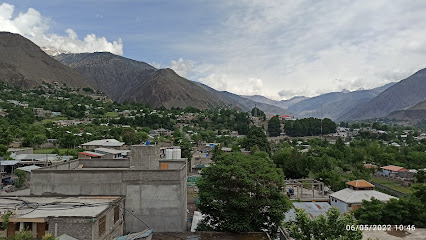
Chitral Museum
Explore the rich cultural heritage of Khyber Pakhtunkhwa at the Chitral Museum, where history comes alive through unique artifacts and stories.
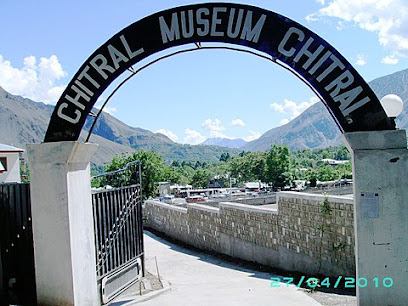
Kalash Valley
Explore the stunning Kalash Valley, where vibrant culture meets breathtaking landscapes in the heart of Khyber Pakhtunkhwa, Pakistan.
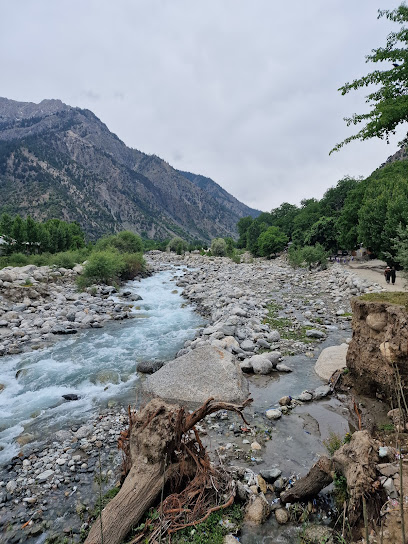
Shahi Masjid Chitral
Discover the Shahi Masjid Chitral, a stunning mosque that showcases exquisite architecture and deep-rooted cultural traditions in the heart of Pakistan's mountainous landscape.
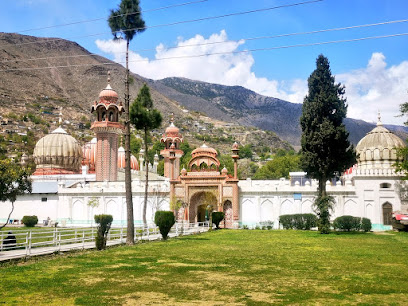
Chitral Gol National Park
Discover the breathtaking beauty and rich biodiversity of Chitral Gol National Park, a true hidden gem in Pakistan's Khyber Pakhtunkhwa region.
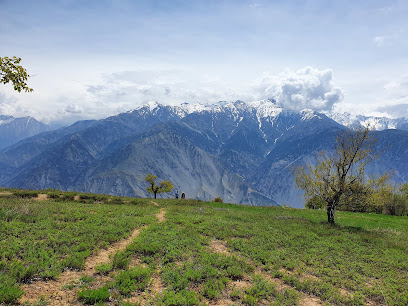
Hindukush Heights
Experience the serenity of Hindukush Heights in Chitrāl, where comfort meets breathtaking mountain landscapes and rich local culture.

Bamboret
Experience the breathtaking landscapes and rich cultural heritage of Bamboret Valley in Chitral, Khyber Pakhtunkhwa, a hidden gem waiting to be explored.
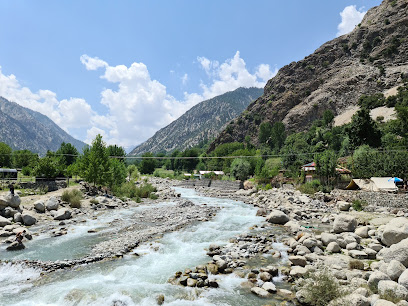
Chitral City Tower Hotel And Restaurant
Experience the charm of Chitral at the City Tower Hotel and Restaurant, your perfect base for exploring Khyber Pakhtunkhwa's natural beauty and rich culture.
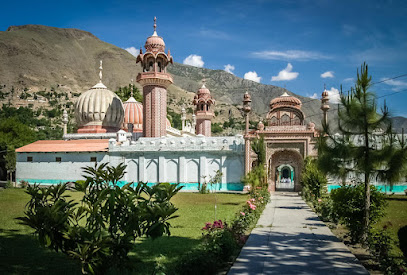
Legendary Hotel Chitral
Discover the tranquility and beauty of Chitral at Legendary Hotel, where comfort meets local charm amidst breathtaking mountain views.
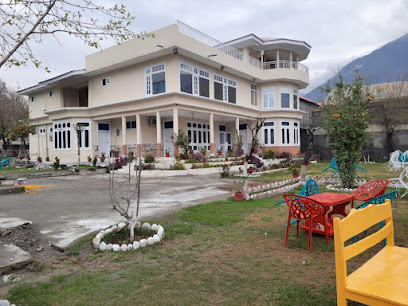
Chitral Fort
Visit Chitral Fort, a historical fortress offering stunning views and a glimpse into the rich heritage of Khyber Pakhtunkhwa, Pakistan.
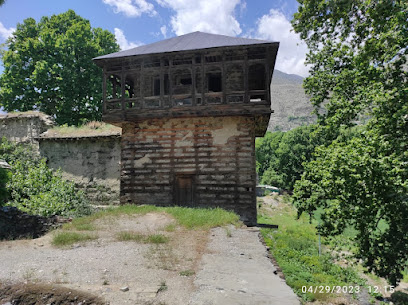
Chitral Polo ground
Discover the vibrant culture and exhilarating polo matches at Chitral Polo Ground, a must-visit destination in Pakistan's breathtaking Chitral Valley.
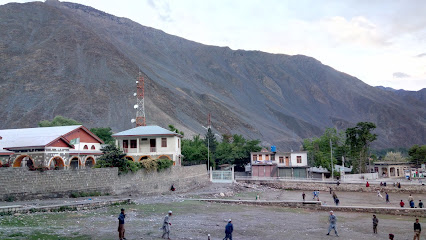
Mastuj Chitral
Explore the breathtaking landscapes and rich culture of Mastuj Chitral, a hidden gem in Khyber Pakhtunkhwa, Pakistan.
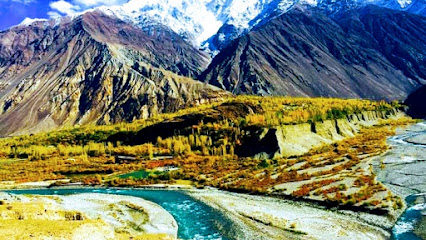
Bumburet
Explore Bumburet Ravine: A glimpse into the vibrant culture and breathtaking landscapes of Pakistan's Kalash Valley.
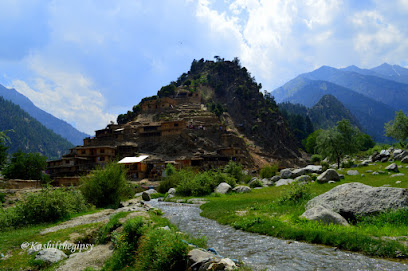
Gahirat Castle
Discover the enchanting Gahirat Castle in Chitrāl, where history, culture, and stunning landscapes intertwine for an unforgettable experience.

Broghil Valley National Park
Experience the breathtaking landscapes and vibrant wildlife of Broghil Valley National Park, a hidden gem in the heart of Pakistan's wilderness.
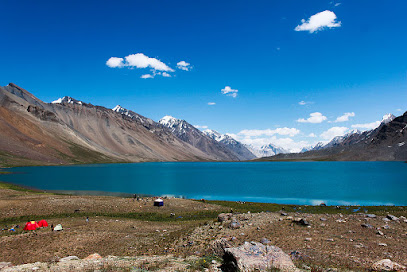
Unmissable attractions to see
Kalash Valley
Explore the stunning landscapes and rich cultural tapestry of Kalash Valley, a hidden gem in Pakistan's Chitral region, known for its unique traditions and festivals.
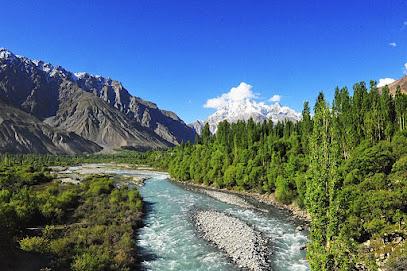
Kalasha Museum
Discover the essence of the Kalasha culture at Kalasha Museum, a heritage site preserving centuries-old traditions and artifacts in breathtaking surroundings.
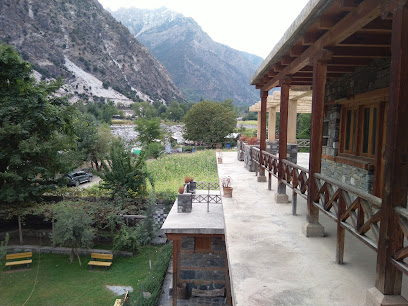
Chitral Museum
Explore Chitral Museum: A treasure trove of Khyber Pakhtunkhwa's rich history and vibrant culture amidst stunning mountain scenery.
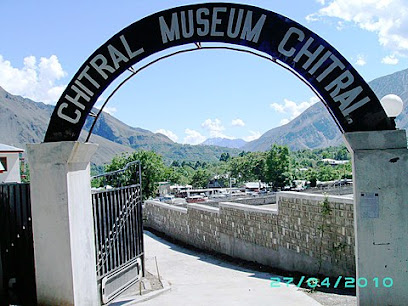
Kalash Valley
Explore the unique culture and stunning landscapes of Kalash Valley, a hidden gem in Pakistan's Khyber Pakhtunkhwa region.
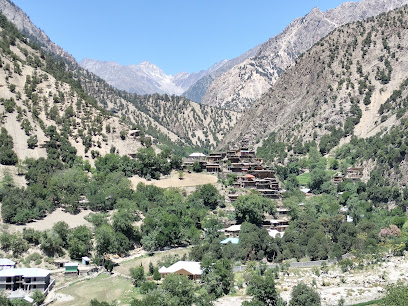
Shahi Masjid Chitral
Explore the architectural beauty and spiritual essence of Shahi Masjid Chitral, a must-see destination in Khyber Pakhtunkhwa, Pakistan.
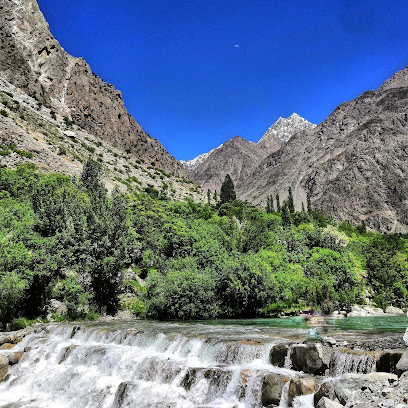
Chitral Gol National Park
Discover the breathtaking landscapes and rich biodiversity of Chitral Gol National Park, a must-visit national park in Khyber Pakhtunkhwa, Pakistan.
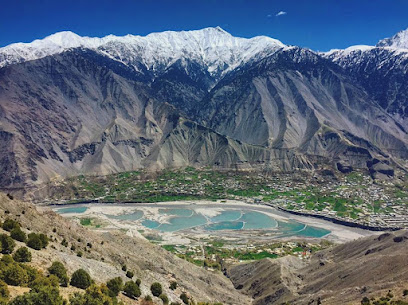
Chitral Gol National Park
Experience the awe-inspiring Chitral Gol National Park, a serene escape into nature's beauty in Khyber Pakhtunkhwa, Pakistan.
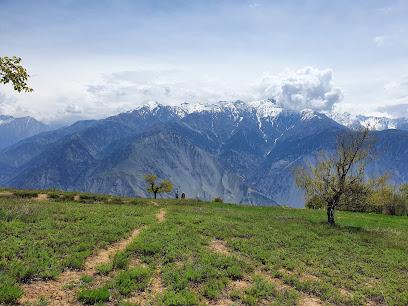
Chitral Fort
Explore Chitral Fort, a stunning fortress steeped in history, offering breathtaking views and a glimpse into Khyber Pakhtunkhwa's rich cultural heritage.
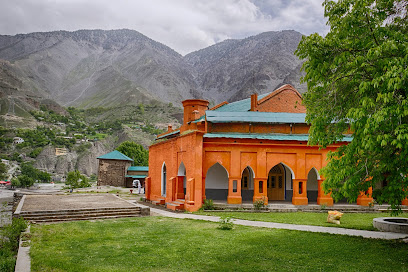
Park
Experience the serene beauty of Chitrāl Park in Khyber Pakhtunkhwa, a perfect getaway for nature lovers and adventure seekers alike.
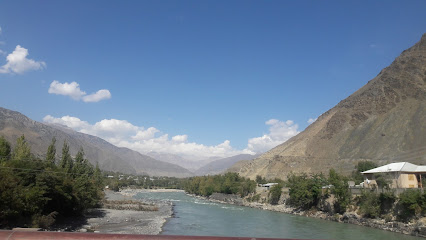
Shehrisham markhor view point
Experience the stunning vistas and serene atmosphere at Shehrisham Markhor View Point in Chitrāl, a hidden gem for nature lovers and photographers.
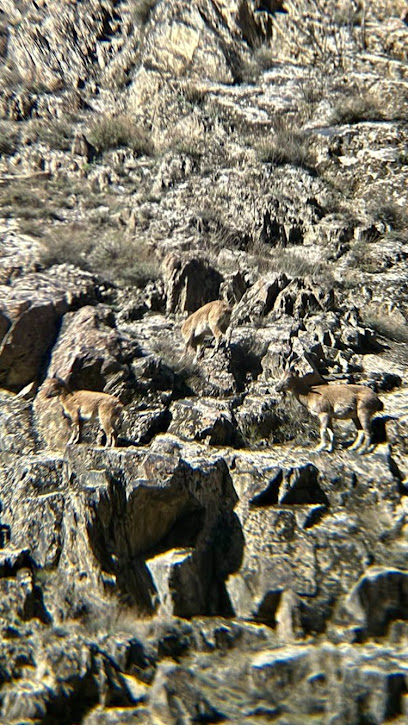
Kesu
Discover the enchanting beauty and rich culture of Kesu, a hidden gem in Chitral, Pakistan, perfect for adventure seekers and culture enthusiasts.
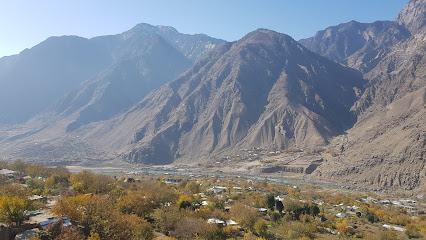
Imran Car Rental & Tours Chitral
Discover the beauty of Chitral with Imran Car Rental & Tours, your reliable partner for exploring the stunning landscapes and rich culture of northern Pakistan.
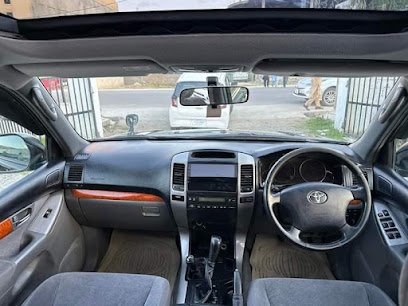
DAWASHISH JUGHOOR
Explore the serene beauty of Dawashish Jughoor, a picturesque city park nestled in the breathtaking landscapes of Chitral, Khyber Pakhtunkhwa.
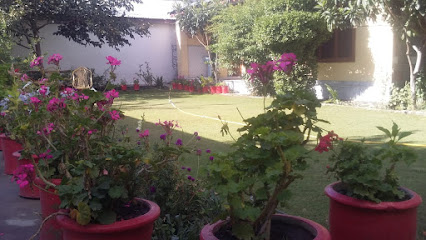
Chaghbini Wildlife Inspection Hut
Explore the natural wonders of Chitrāl at the Chaghbini Wildlife Inspection Hut, a sanctuary for wildlife enthusiasts and trekkers alike.
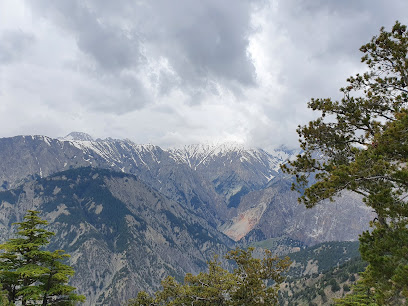
Chumurkone tek chitral pakistan
Experience the serene beauty and rich culture of Chumurkone, a hidden treasure in the heart of Chitral, Pakistan.
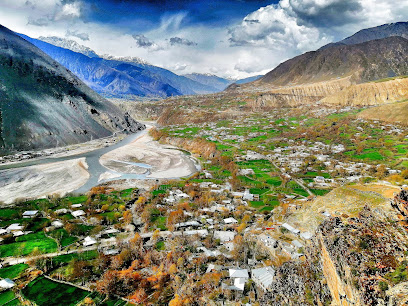
Essential places to dine
Fokker Friendship Restaurant Chitral
Experience authentic Pakistani cuisine amidst breathtaking views at Fokker Friendship Restaurant in Chitral.
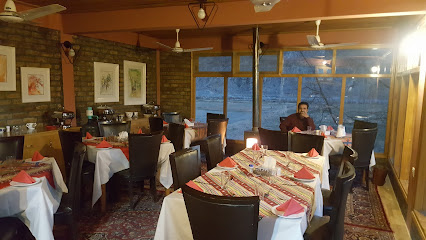
Diwan Resturant
Experience authentic Pakistani cuisine at Diwan Restaurant in Chitrāl - where tradition meets flavor amidst breathtaking landscapes.
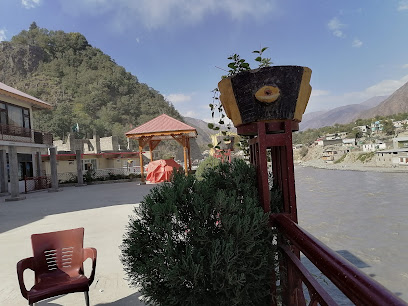
New Shinwari Restaurant AtoZ
Experience authentic Khyber Pakhtunkhwa cuisine at New Shinwari Restaurant AtoZ in Chitrāl – where every dish tells a story.
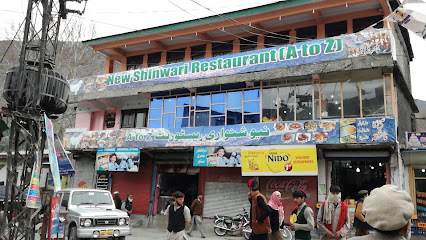
Taste Me Fast food Restaurant Chitral
Experience the best fast food in Chitral at Taste Me Restaurant—where flavor meets convenience in a cozy setting.
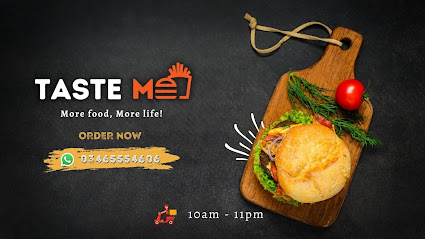
Conflux Fast Food
Experience authentic flavors and fast food delights at Conflux Fast Food in Gankorini Singur, Chitrāl—a true taste of Pakistan!
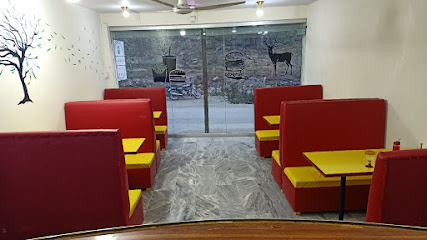
Chitral Guest House and Zowalo Restaurant
Experience authentic Pakistani cuisine amidst the stunning landscapes of Chitral at Zowalo Restaurant within Chitral Guest House.
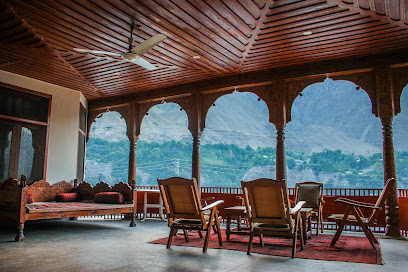
River Breeze Restaurant
Experience authentic Pakistani cuisine amidst breathtaking views at River Breeze Restaurant in Chitral.
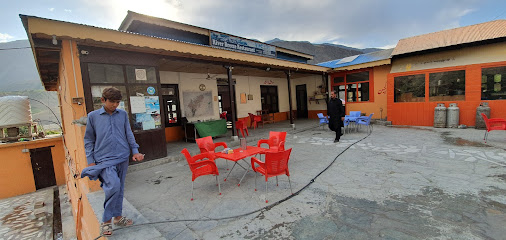
Al Bustan Restaurant
Discover Al Bustan Restaurant in Chitral - where delicious food meets a welcoming family-friendly atmosphere amidst stunning landscapes.
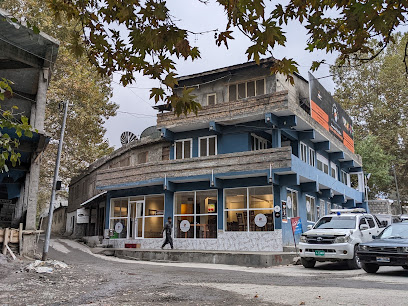
Chitral Heights Hotel and Restaurant
Experience authentic Pakistani cuisine amidst breathtaking mountain views at Chitral Heights Hotel and Restaurant.
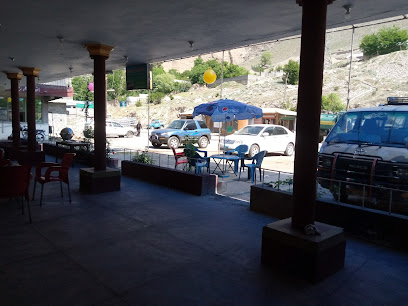
ERTUGRUL Hotel and Restaurant
Discover authentic Pakistani flavors at ERTUGRUL Hotel and Restaurant in Chitrāl – an unforgettable culinary journey awaits!
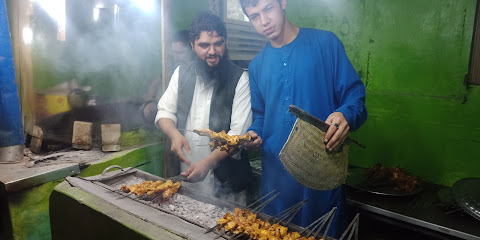
Open View Restaurant
Experience exquisite local cuisine at Open View Restaurant while soaking in breathtaking mountain views in Chitral, Khyber Pakhtunkhwa.
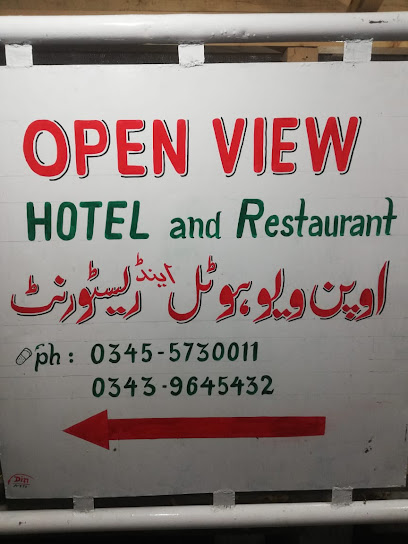
Namak Mandi Tikka Shop
Discover the authentic taste of Khyber Pakhtunkhwa at Namak Mandi Tikka Shop – a must-visit destination for food lovers in Chitrāl.
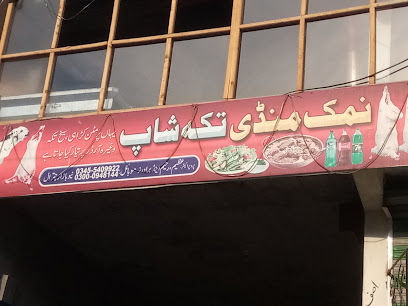
CHAMANI CAFE
Experience authentic flavors at Chamani Cafe in Chitrāl - where traditional Pakistani cuisine meets warm hospitality.
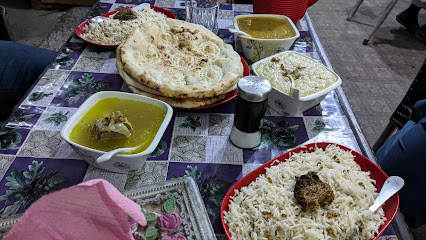
Kebab Shop
Experience authentic Afghani flavors at Kebab Shop in Chitrāl – where delicious meets affordable dining.
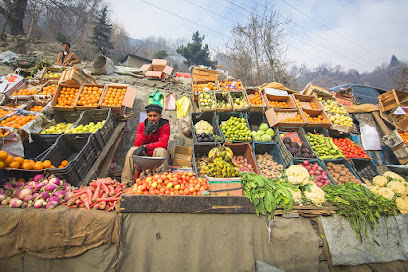
Terichmir Heights Motel and Resturant
Discover serenity at Terichmir Heights Motel and Restaurant in Chitral - where breathtaking views meet delicious local cuisine.
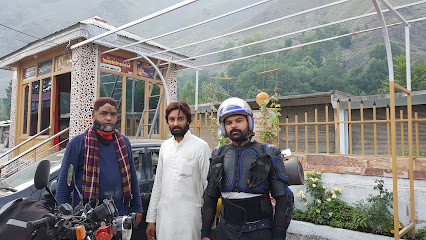
Markets, malls and hidden boutiques
Chitral Super Store Balach
Discover the vibrant culture and local flavors at Chitral Super Store in Chitrāl, your ultimate shopping destination for authentic experiences.
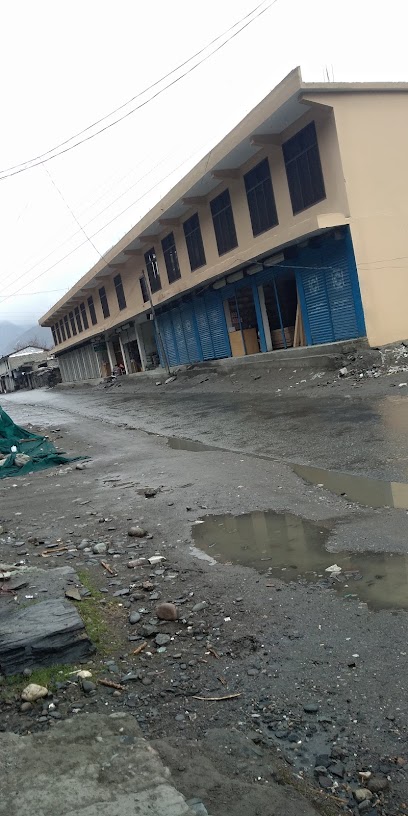
Chitrali wooles shop
Discover the vibrant world of Chitrali craftsmanship at Chitrali Wooles Shop, where every piece of wool is a story waiting to be told.
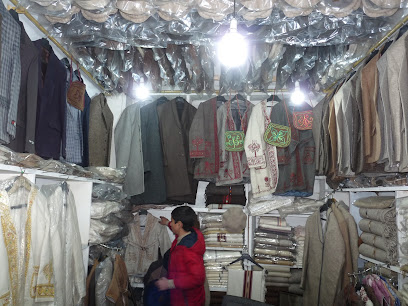
Unique Fabrics Chitral
Explore traditional textiles and unique craftsmanship at Unique Fabrics Chitral, a vibrant destination in Chitrāl, Pakistan, showcasing the region's rich heritage.

Abbas Rauf khan General Store
Discover the charm of Khyber Pakhtunkhwa at Abbas Rauf Khan General Store, where local culture and hospitality meet.
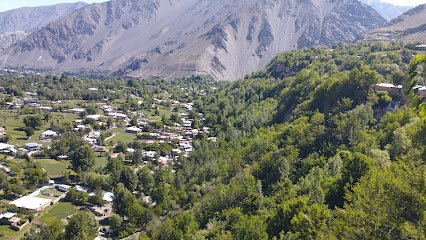
Chitral Store
Explore Chitral Store for authentic local crafts and treasures that embody the rich culture of Khyber Pakhtunkhwa, Pakistan.
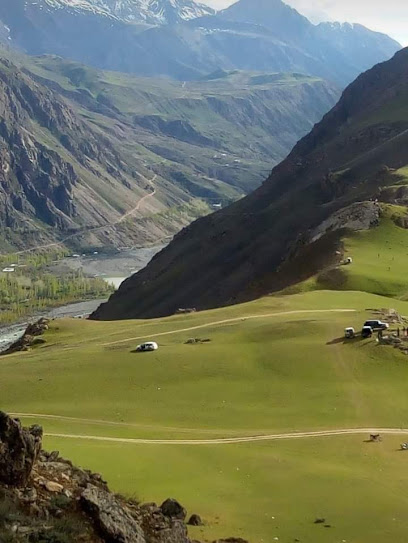
Abdullah General store
Experience the vibrant culture of Chitrāl at Abdullah General Store, a treasure trove of local crafts and delicious regional flavors.

WaQas shOp
Explore the charm of Ayun at WaQas Shop, your gateway to unique local crafts and authentic souvenirs in Chitral Valley.

Qurban Shop
Discover the charm of Chitrāl at Qurban Shop, a general store filled with local products and unique souvenirs that reflect the region's rich culture.

Noor illahi Shop
Explore local culture and unique treasures at Noor Illahi Shop in the heart of Chitrāl, Pakistan.

Kalim Shopping Mall Chitral
Discover unique women's fashion at Kalim Shopping Mall Chitral, where local culture meets contemporary style in the heart of Pakistan.
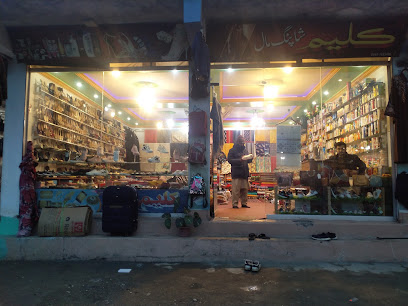
Ihsan General Store
Explore Ihsan General Store in Chitrāl for a blend of local culture and shopping, offering unique gifts and everyday essentials.

Gur Delight Chitral
Discover the authentic essence of Chitrāl at Gur Delight, a local store brimming with unique crafts and cultural treasures.
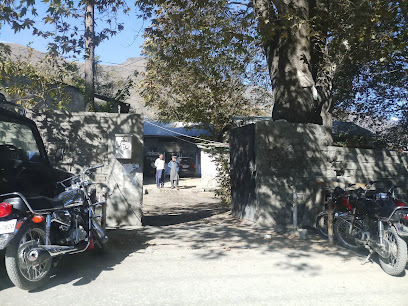
Hayat & Brothers General Store
Discover local culture and essential goods at Hayat & Brothers General Store in the scenic Chitrāl region of Pakistan.

Baba General Store
Experience the charm of Baba General Store in Chitrāl, where local culture meets everyday shopping in a warm, welcoming environment.
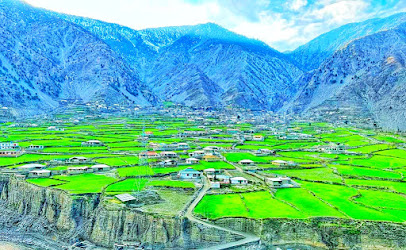
Fahimullah Shopping Center
Explore the heart of Chitrāl at Fahimullah Shopping Center, a vibrant shopping mall offering local handicrafts and delicious cuisine.
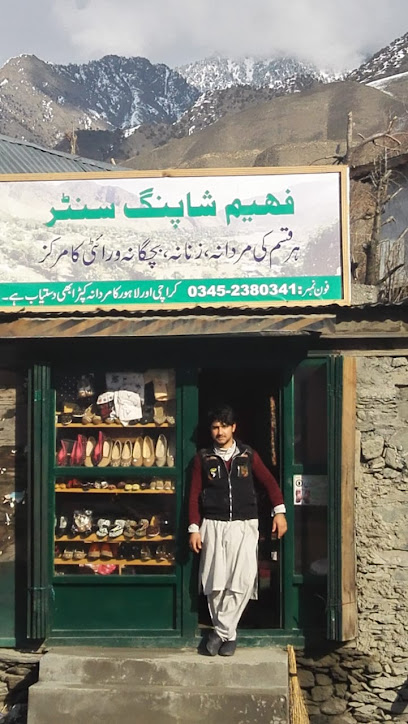
Essential bars & hidden hideouts
PTDC Motel Chitral
Experience the serene beauty of Chitral at PTDC Motel, your perfect retreat in the heart of Khyber Pakhtunkhwa, Pakistan.
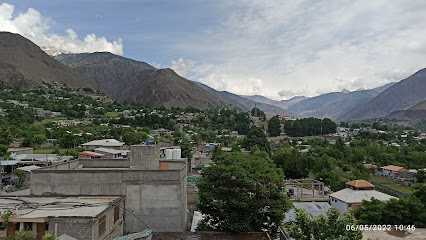
Hindukush Heights
Experience the beauty of Chitrāl Valley at Hindukush Heights, where comfort meets breathtaking mountain views and warm hospitality.

Chitral City Tower Hotel And Restaurant
Discover authentic Pakistani flavors and breathtaking mountain views at Chitral City Tower Hotel And Restaurant, the perfect retreat for every traveler.
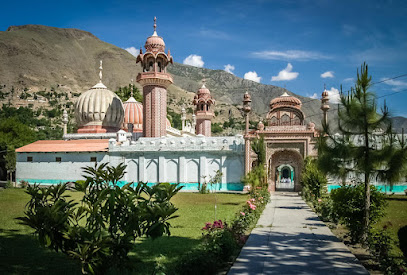
Fokker Friendship Restaurant Chitral
Experience the flavors of Chitral at Fokker Friendship Restaurant, where local cuisine meets stunning mountain views.
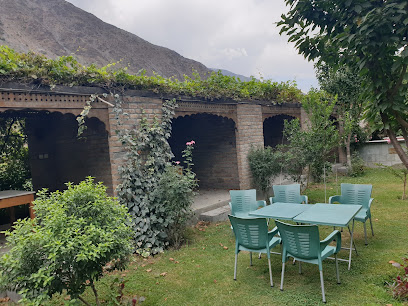
Diwan Resturant
Experience the authentic flavors of Khyber Pakhtunkhwa at Diwan Restaurant in Chitrāl, where local cuisine meets warm hospitality.
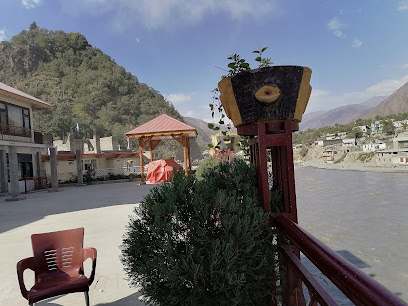
Taste Me Fast food Restaurant Chitral
Experience the best of fast food and local cuisine at Taste Me Fast Food Restaurant in Chitral, a must-visit for every traveler.
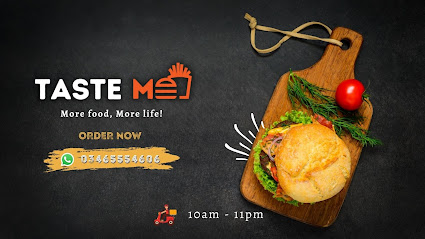
Kashmir Bakers and Sweet House
Discover the rich flavors of Chitrāl at Kashmir Bakers and Sweet House, where delightful pastries and traditional sweets await every visitor.
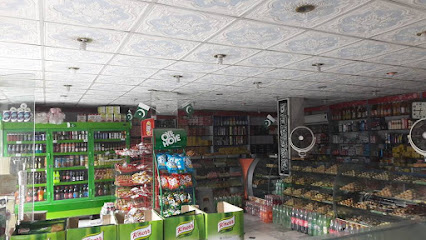
Conflux Fast Food
Discover the vibrant flavors of Pakistan at Conflux Fast Food, a must-visit restaurant in the heart of Chitral's beautiful Gankorini Singur village.
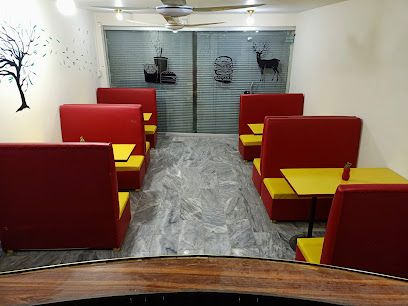
Chitral Guest House and Zowalo Restaurant
Experience traditional Pakistani cuisine and warm hospitality at Chitral Guest House and Zowalo Restaurant, nestled in the stunning landscapes of Khyber Pakhtunkhwa.
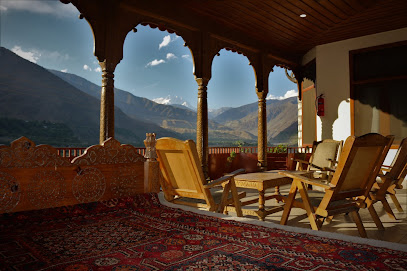
Al Bustan Restaurant
Discover the flavors of Chitrāl at Al Bustan Restaurant, a family-friendly dining destination offering delicious local and international cuisine.
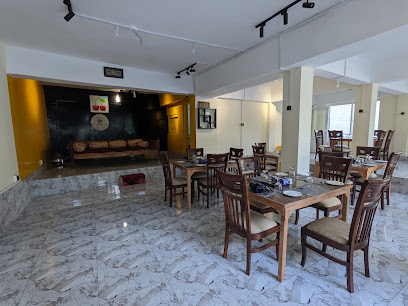
ERTUGRUL Hotel and Restaurant
Experience authentic Pakistani cuisine at ERTUGRUL Hotel and Restaurant, where tradition meets taste in the heart of Chitrāl.
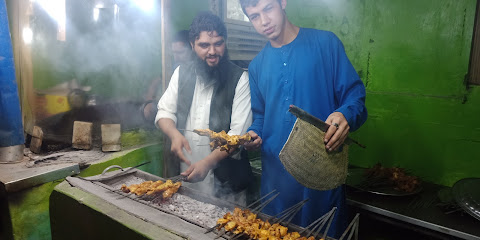
CHAMANI CAFE
Experience the rich flavors of Chitrāl at Chamani Cafe, where local meets international in a cozy dining haven.
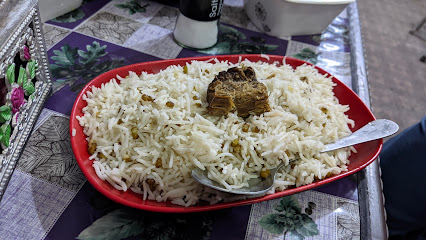
Terichmir Heights Motel and Resturant
Experience the authentic taste of Chitrāl at Terichmir Heights Motel and Restaurant, where breathtaking views meet delightful local cuisine.
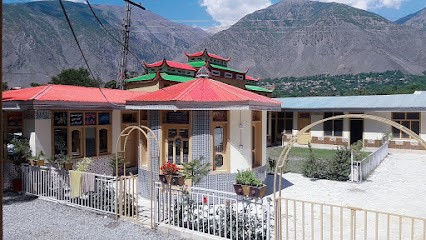
Pamir Riverside Inn Chitral
Discover tranquility and breathtaking beauty at Pamir Riverside Inn Chitral, your perfect getaway in the heart of Pakistan's stunning landscapes.

Local Phrases
-
- Helloسلام
[Salaam] - Goodbyeخدا حافظ
[Khuda Hafiz] - Yesہاں
[Haan] - Noنہیں
[Nahi] - Please/You're welcomeمہربانی/خوش آمدید
[Meharbani/Khush Amdid] - Thank youشکریہ
[Shukriya] - Excuse me/Sorryمعاف کیجیے/معافی چاہتا ہوں
[Maaf kijiye/Maafi chahta hoon] - How are you?آپ کیسے ہیں؟
[Aap kaise hain?] - Fine. And you?ٹھیک ہوں۔ آپ؟
[Theek hoon. Aap?] - Do you speak English?کیا آپ انگریزی بولتے ہیں؟
[Kya aap angrezi bolte hain?] - I don't understandمجھے سمجھ نہیں آیا
[Mujhe samajh nahi aya]
- Helloسلام
-
- I'd like to see the menu, pleaseبراہ کرم مینو دیکھنا چاہتا ہوں
[Barah e karam menu dekhna chahta hoon] - I don't eat meatمیں گوشت نہیں کھاتا
[Mein gosht nahi khata] - Cheers!خوش رہیں!
[Khush rahain!] - I would like to pay, pleaseبراہ کرم ادا کرنا چاہتا ہوں
[Barah e karam ada karna chahta hoon]
- I'd like to see the menu, pleaseبراہ کرم مینو دیکھنا چاہتا ہوں
-
- Help!مدد!
[Madad!] - Go away!چلے جاؤ!
[Chale jao!] - Call the Police!پولیس کو بلاؤ!
[Police ko bulao!] - Call a doctor!ڈاکٹر کو بلاؤ!
[Doctor ko bulao!] - I'm lostمیں گم ہو گیا ہوں
[Mein gum ho gaya hoon] - I'm illمجھے بیماری ہو گئی ہے
[Mujhe bimari ho gayi hai]
- Help!مدد!
-
- I'd like to buy...میں خریدنا چاہتا ہوں...
[Mein kharidna chahta hoon...] - I'm just lookingمیں صرف دیکھ رہا ہوں
[Mein sirf dekh raha hoon] - How much is it?یہ کتنے کا ہے؟
[Yeh kitne ka hai?] - That's too expensiveیہ بہت مہنگا ہے
[Yeh bohat mehnga hai] - Can you lower the price?کیا آپ قیمت کم کر سکتے ہیں؟
[Kya aap qeemat kam kar sakte hain?]
- I'd like to buy...میں خریدنا چاہتا ہوں...
-
- What time is it?وقت کیا ہوا ہے؟
[Waqt kya hua hai?] - It's one o'clockایک بجے ہیں
[Ek baje hain] - Half past (10)(10) کے بعد نصف
[(Das) ke baad nisf] - Morningصبح
[Subah] - Afternoonدوپہر
[Dopahar] - Eveningشام
[Shaam] - Yesterdayکل
[Kal] - Todayآج
[Aaj] - Tomorrowکل
[Kal] - 1ایک
[Ek] - 2دو
[Do] - 3تین
[Teen] - 4چار
[Chaar] - 5پانچ
[Paanch] - 6چھے
[Chhe] - 7سات
[Saath] - 8آٹھ
[Aath] - 9نو
[No] - 10دس
[Das]
- What time is it?وقت کیا ہوا ہے؟
-
- Where's a/the...?...کہاں ہے؟
[...kahan hai?] - What's the address?پتہ کیا ہے؟
[Pata kya hai?] - Can you show me (on the map)?کیا آپ مجھے دکھا سکتے ہیں (نقشے پر)؟
[Kya aap mujhe dikhha sakte hain (naqshay par)?] - When's the next (bus)?اگلا (بس) کب ہے؟
[Agla (bus) kab hai?] - A ticket (to ....)ایک ٹکٹ (....کے لیے)
[Ek ticket (....ke liye)]
- Where's a/the...?...کہاں ہے؟
History of Chitral
-
The history of Chitral dates back to ancient times. Archaeological evidence suggests that the region was inhabited as far back as 2000 BCE. The area was a significant part of the Gandhara civilization, which thrived in the region and left behind numerous artifacts and inscriptions.
-
Chitral is home to the Kalash people, believed to be descendants of Alexander the Great's soldiers. The Kalash have a distinct culture, language, and religion, setting them apart from the rest of Pakistan. Their rich traditions, including unique festivals like Chilam Joshi and Uchal, are celebrated with much fervor and attract tourists from all over the world.
-
The Chitral Dynasty, also known as the Kator Dynasty, ruled the region for over 400 years, starting in the late 16th century. The dynasty played a crucial role in shaping the cultural and political landscape of Chitral. The Mehtar of Chitral, the title given to the rulers, were known for their administrative skills and alliances with neighboring states.
-
In the 19th century, Chitral became a focal point in the 'Great Game'—the strategic rivalry between the British Empire and Tsarist Russia. The British established a political agent in Chitral in 1895, leading to significant changes in the region's administration and infrastructure. The Chitral Fort, which played a pivotal role during the Siege of Chitral in 1895, stands as a testament to this era.
-
Following the partition of British India in 1947, Chitral acceded to Pakistan. In 1969, it was fully integrated into Pakistan as a district of the Khyber Pakhtunkhwa province. This integration brought about significant socio-economic changes, including the development of infrastructure, education, and healthcare facilities.
-
Chitral’s vibrant culture is celebrated through numerous festivals and traditions. The Shandur Polo Festival, held annually at the Shandur Pass, is one of the highest polo grounds in the world and attracts players and spectators from around the globe. The region is also known for its music, dance, and traditional crafts, which reflect the diverse heritage of its inhabitants.
-
Chitral is renowned for its stunning natural landscapes, including the towering peaks of the Hindu Kush mountains, lush valleys, and crystal-clear rivers. The region is home to diverse flora and fauna, including the elusive snow leopard and the markhor, Pakistan’s national animal. The Chitral Gol National Park is a protected area that showcases the region’s rich biodiversity.
Chitral Essentials
-
Chitral is located in the Khyber Pakhtunkhwa province of Pakistan. The nearest international airport is Islamabad International Airport, approximately 365 kilometers away. From Islamabad, you can take a domestic flight to Chitral Airport, which takes about an hour. Alternatively, you can travel by road via the Lowari Tunnel, which connects Chitral with the rest of Pakistan. The road journey takes approximately 8-10 hours from Islamabad. Public buses and private taxis are available for this route.
-
Chitral has limited but functional transportation options. Within the town, you can use local taxis and rickshaws, which are readily available and affordable. For exploring remote areas, it’s advisable to hire a 4x4 vehicle. Public buses and vans (known as 'Hiace') operate between Chitral and nearby villages. Renting a car is also an option but requires careful driving due to the rugged terrain and narrow roads.
-
The official currency in Pakistan is the Pakistani Rupee (PKR). Credit cards are accepted in some hotels and restaurants in Chitral, but it is advisable to carry cash, especially when visiting rural areas. ATMs are available in Chitral, but it’s wise to withdraw sufficient cash in larger cities like Islamabad before traveling. Smaller establishments typically only accept cash payments.
-
Chitral is generally considered safe for tourists, but standard precautions should still be taken. Avoid walking alone at night in unfamiliar areas and keep an eye on your belongings in crowded places. While Chitral has a low crime rate, it’s best to stay vigilant and aware of your surroundings. Some remote areas may have limited security presence, so it's advisable to travel with a local guide.
-
In case of an emergency, dial 1122 for immediate assistance. Chitral has a local hospital, but for severe medical emergencies, you may need to be transported to a larger city. It is highly recommended to have travel insurance that covers medical emergencies. Pharmacies are available in town for minor health issues. Always carry a basic first-aid kit when traveling to remote areas.
-
Fashion: Do dress modestly, particularly in rural areas and religious sites. Avoid wearing revealing clothing. Religion: Do respect local customs and religious practices. Always remove your shoes when entering mosques and cover your head if required. Public Transport: Do be courteous and offer your seat to elderly passengers. Don’t eat or drink on public transport. Greetings: Do greet people with a smile and a handshake. 'Assalam-o-Alaikum' is a common greeting. Eating & Drinking: Do try local delicacies and accept food offerings graciously. Don’t refuse hospitality, as it is considered impolite.
-
To experience Chitral like a local, visit the local bazaars where you can buy traditional handicrafts and sample local food. Engage with locals, who are known for their hospitality and willingness to share stories about their culture and history. Don’t miss visiting the Chitral Fort and the Shahi Mosque. For a unique experience, attend the Kalash festivals in the Kalash Valleys, which offer a glimpse into the region’s unique cultural heritage.
Trending Landmark in Chitral
Nearby Cities to Chitral
-
Things To Do in Swat
-
Things To Do in Kaghan
-
Things To Do in Naran
-
Things To Do in Peshawar
-
Things To Do in Abbottabad
-
Things To Do in Gilgit
-
Things To Do in Murree
-
Things To Do in Islamabad
-
Things To Do in Kabul
-
Things To Do in Rawalpindi
-
Things To Do in Skardu
-
Things To Do in Vahdat
-
Things To Do in Dushanbe
-
Things To Do in Mazar-i-Sharif
-
Things To Do in Tursunzoda











